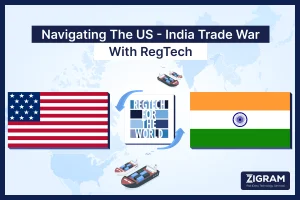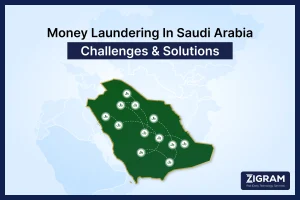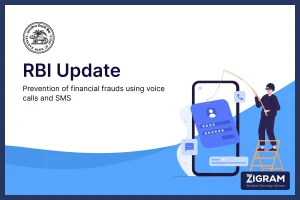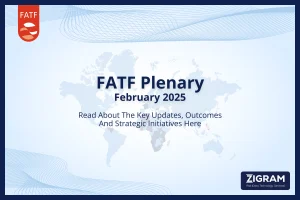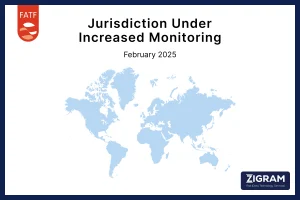The Financial Action Task Force (FATF), a global watchdog for anti-money laundering (AML) and counter-terrorism financing (CTF) standards, has recently called upon India to enhance its scrutiny of bank accounts held by Politically Exposed Persons (PEPs). This guidance is a notable step in combating corruption and enhancing transparency within the financial system. While India has shown progress in aligning with global anti-money laundering standards, the FATF’s focus on domestic political figures underscores the persistent vulnerabilities that require attention. The proximity of politicians and government officials to power makes them susceptible to bribery, corruption, and other illegal activities, highlighting the importance of implementing stricter checks on the bank accounts of PEPs.

Get FATF updates instantly! Follow us on LinkedIn
The recommendations come at a crucial time, with state elections looming, emphasizing the pressing need for political accountability. While adopting the FATF’s recommendations presents an opportunity for India to rebuild public trust and demonstrate its commitment to clean governance, it is essential to balance the need for transparency with the potential for misuse of these regulations. The challenge lies in ensuring fairness and impartiality in the implementation of these measures to prevent the enhancement of scrutiny on PEPs from being utilized for political purposes. India’s compliance with anti-money laundering laws is commendable, but addressing the identified compliance gaps, including the scrutiny of domestic political figures, is essential for maintaining its standing as a responsible member of the global financial community. By implementing more rigorous checks on the bank accounts of PEPs, India can take a significant step towards reducing corruption and ensuring the robustness and transparency of its financial system.
Understanding The FATF’s Recommendation
The FATF’s recommendation to tighten scrutiny on PEPs stems from the inherent risks associated with individuals in positions of power, including politicians and government officials. These individuals often have access to significant financial resources and decision-making authority, which can be exploited for illicit activities. Without stringent oversight, PEPs can engage in activities such as money laundering, embezzlement, and financing of terrorism, which can have severe repercussions on the financial system and the broader economy.
The FATF’s call to action highlights the necessity for financial institutions to implement enhanced due diligence (EDD) measures when dealing with PEPs. This includes continuous monitoring of their financial transactions, thorough verification of their sources of wealth, and close scrutiny of their business relationships. The goal is to identify and mitigate any potential risks associated with these high-profile individuals, thereby ensuring that financial institutions remain compliant with global AML standards.
India's FATF Rating And Regulatory Response
In the June 2024 – FATF report, India received a rating of “largely compliant,” indicating that while the country has made significant strides in strengthening its AML/CTF framework, there are still areas that require further attention. The FATF particularly pointed out the need for enhanced scrutiny of PEPs, suggesting that India’s current measures, though robust, need to be more comprehensive in addressing the risks associated with these individuals.
In response to these recommendations, India has introduced several regulations aimed at tightening the oversight of PEPs. Under the Prevention of Money Laundering Act (PMLA), financial institutions are required to conduct enhanced due diligence (EDD) for PEPs, which includes more rigorous identity verification processes, ongoing monitoring of transactions, and reporting suspicious activities to the Financial Intelligence Unit (FIU). Additionally, banks and financial institutions must ensure that they have adequate systems in place to identify PEPs and assess their risk levels continuously.
What Is The Role Of Technology In Meeting Compliance Demands?
The landscape of Anti-Money Laundering (AML) compliance is becoming increasingly complex, driven by evolving regulatory frameworks, heightened scrutiny, and the growing sophistication of financial crimes. The Financial Action Task Force (FATF), as the global standard-setter for AML, continues to issue robust recommendations that demand rigorous adherence from financial institutions worldwide. For countries like India, where FATF has urged tighter scrutiny on the bank accounts of politically exposed persons (PEPs) and government officials, the need for advanced technological solutions has never been more critical.
What Is ZIGRAM’s Role In PEP Compliance?
ZIGRAM offers an integrated suite of tools designed to meet these challenges head-on. Our solutions combine cutting-edge technology with vast data assets to provide financial institutions with the capability to effectively monitor, assess, and mitigate risks associated with PEPs. By leveraging machine learning, artificial intelligence, and big data analytics, ZIGRAM’s RegTech stack ensures that institutions can stay ahead of regulatory requirements and maintain a high level of compliance.
Our PEP and sanction screening solutions are designed to help financial institutions navigate the stringent regulatory environment. The company’s in-house technology is tailored to meet the rigorous standards set by global bodies such as the FATF. By integrating comprehensive data sources and advanced algorithms, ZIGRAM provides accurate and up-to-date screening capabilities that are crucial for identifying and managing risks associated with PEPs.
How Does ZIGRAM Support Financial Institutions In India?
ZIGRAM’s solutions are particularly well-suited to help Indian financial institutions comply with the FATF’s recommendations. The company’s technology not only streamlines the due diligence process but also reduces the occurrence of false positives, which can be a significant drain on resources. By automating many aspects of the compliance process, ZIGRAM allows institutions to focus on high-priority cases while maintaining thorough monitoring of all PEP accounts.
Explore ZIGRAM’s Most Advanced PEP focused machine learning and automation platform for large teams
ZIGRAM’s platform can be integrated with existing systems within a financial institution, providing seamless data flow and enhanced functionality. This integration ensures that compliance teams have access to all the necessary tools and information to conduct thorough due diligence on PEPs, thus aligning with the FATF’s emphasis on enhanced scrutiny.
ZIGRAM understands that each financial institution has unique needs and challenges. To address this, their solutions are highly customizable, allowing institutions to tailor the platform to their specific requirements. Whether a large multinational bank or a smaller financial entity, ZIGRAM’s platform can be adapted to fit the scale and scope of the institution’s operations.
ZIGRAM’s solutions are designed to be scalable, ensuring that as an institution grows, the platform can grow with it. This scalability is particularly important for institutions in India, where the financial sector is rapidly expanding, and the demands for AML compliance are increasing.
Want to know more about our solutions? Visit our website now!
By leveraging ZIGRAM’s solutions, financial institutions can ensure that they are not only meeting the FATF’s recommendations but also building a robust framework for long-term compliance. This proactive approach will help protect the institution’s reputation and contribute to the overall stability of the financial system.
To learn more about ZIGRAM’s PEP and sanction screening solutions, request a FREE DEMO and experience how our technology can help your institution meet its compliance needs. Strengthen your AML practices today with ZIGRAM’s advanced solutions!!
- #FATF
- #AML
- #KYC
- #Compliance
- #PEPs
- #RisksChecks

